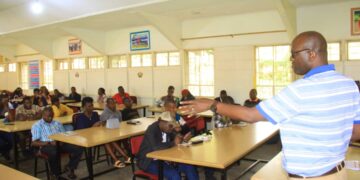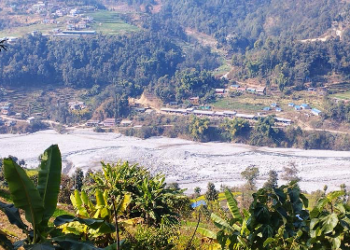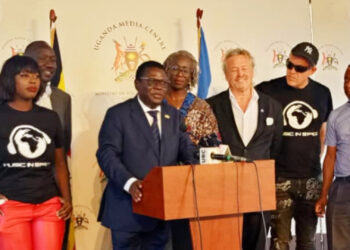KAMPALA
On September 5th, during the Environment parliament that took place at the Parliament of Uganda under the theme ‘Mainstreaming Climate Action into Politics and Advancing Green Jobs and Environmental Justice for Uganda’, the environmental activists urged the political candidates for 2026 elections to prioritize climate change. This is because climate change is widely acknowledged as a profound global challenge and have had a growing impact on the African continent.
According to the United Nations (UN), in 2024, heavy rainfall caused the collapse of a dam in Sudan’s eastern Red Sea state and left dozens of people missing. Last month, Uganda, registered a disaster of the same nature. Heavy rains in Mbale city and Sironko district pounded the area, collapsed bridges and flooded many homes. The devastating flash floods killed three people and displaced hundreds.
Still at the end of the month, a landslide wiped out an entire village in Sudan’s Western region of Darfur, killing an estimated 1,000 people in one of the deadliest natural disasters. These disasters are continuously happening and are triggered by human induced activities and natural disasters including; burning of fossil fuels, deforestation, floods, drought, tsunamis, landslides and others that fuel climate change.
Reports indicate that though Africa has contributed negligibly to the changing climate, with just about two to three percent of global emissions, it stands out disproportionately as the most vulnerable region in the world.
Noteworthy, over 80% of Africa’s energy consumption is generated from natural gas, coal, and oil, which are fossil-fuel based and contribute to greenhouse effects, which are the most significant driver of climate change.
According to World Health Organisation (WHO), between 2030 and 2050, climate change is expected to cause approximately 250,000 additional deaths per year from undernutrition, malaria, diarrhea and heat stress alone.
To lessen the effects of climate change, unity and collaboration is indispensable. The environmental activists therefore, appeal to political candidates for 2026 general elections in Uganda to prioritize climate change. This can be done through embedding it into their political manifestos.
The political candidates should clearly communicate to voters that climate change is a critical threat impacting all of us, most especially the vulnerable populations such as children, women, Persons with Disabilities (PWDs) and others.
That aside, political candidates should advise voters especially that live in areas prone to disasters to vacate, to avoid further effects of climate change brought about by natural disasters and human induced activities.
Lastly, the political candidates should encourage voters to engage in green economic sectors such as tourism, fishing, agriculture and renewable energy because they are clean and environmental friendly compared to fossil fuels that expose people to health risks.
By Hildah Nsimiire
E-mail: hildansimiire@gmail.com








































